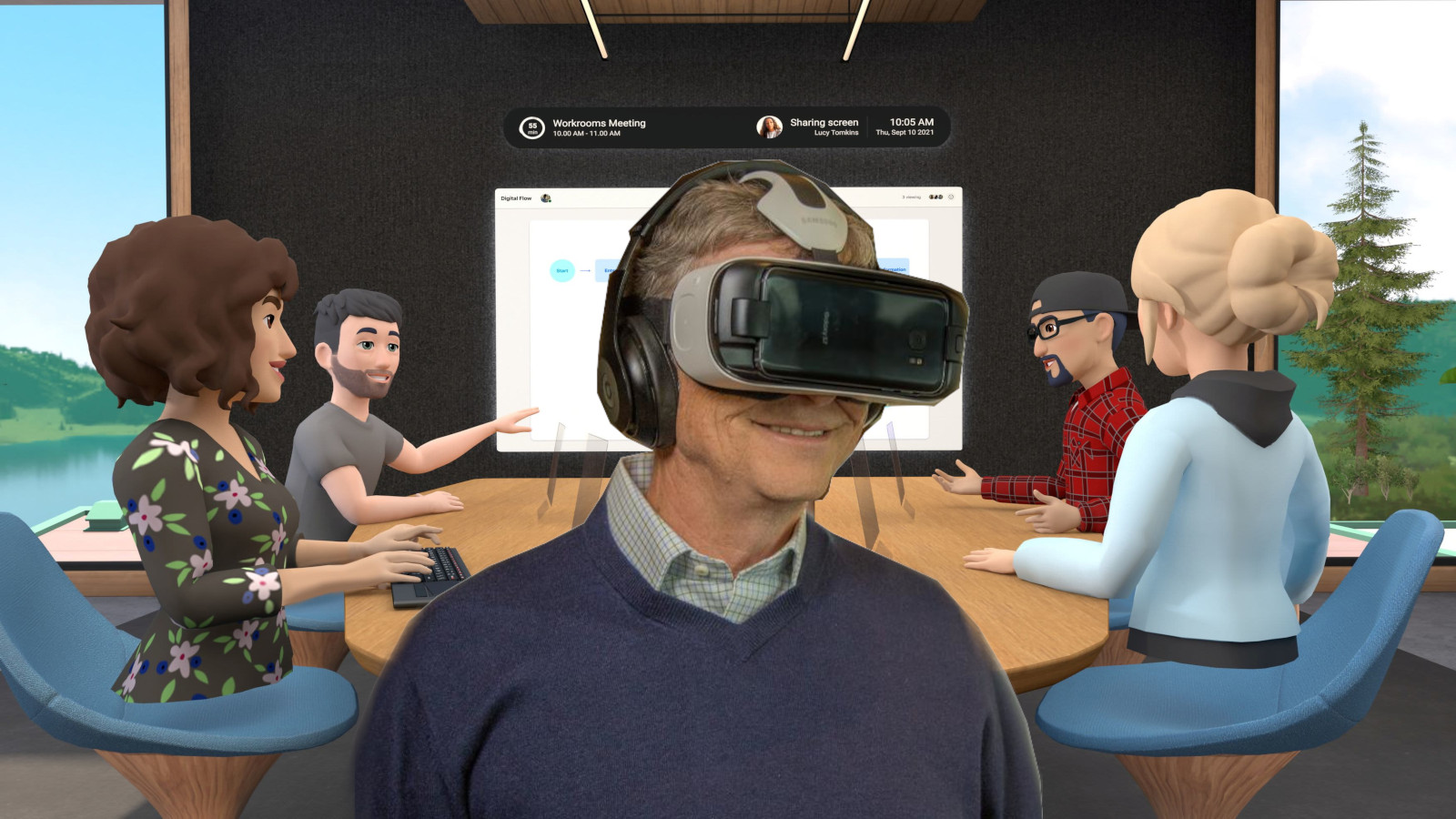Bill Gates predicts that most meetings will move to the Metaverse within 3 years
Not a Teams player

Bill Gates believes that the future of remote work meetings is changing, predicting that most will be held in the Metaverse within the next three years. This claim was part of a much broader commentary made by the man himself on his blog, GatesNotes back on December 7 2021, where he reviewed the difficulties faced in 2021 and prospects to remain optimistic into 2022.
As reported by VRScout, Gates discussed issues outside of the future of the Metaverse, including COVID-19 misinformation and a container ship that got stuck in the Suez Canal. But he dedicated a large portion of the post to the importance of staying connected in difficult times, writing, "We’ve all had to adapt to a 'new normal,' although what that looks like is different for every person. For me, the result has been a year spent mostly online".
He later adds that he's "really interested in how technology can create more spontaneity with remote work moving forward" after discussing how the pandemic has revolutionized working at home for office-based staff, stating that he expects most of the office digitization put into place to get ourselves through regional lockdowns and other mandates introduced in the height of the pandemic will hang around long after it ends.
This isn't just talking about how far services like Zoom and Microsoft Teams have developed to cope with the huge increase in users though, with Gates claiming that "within the next two or three years, I predict most virtual meetings will move from 2D camera image grids—which I call the Hollywood Squares model, although I know that probably dates me—to the metaverse, a 3D space with digital avatars."
We have a full explanation as to what this actually entails for those unfamiliar with the Metaverse, but Meta (parent company of Facebook and Instagram) describes it as “A set of virtual spaces where you can create and explore with other people who aren’t in the same physical space as you. You’ll be able to hang out with friends, work, play, learn, shop, create and more”.
This meshes with Gate's own visions, as he writes "the idea is that you will eventually use your avatar to meet with people in a virtual space that replicates the feeling of being in an actual room with them. To do this, you’ll need something like VR goggles and motion capture gloves to accurately capture your expressions, body language, and the quality of your voice."
Analysis: We have our doubts
As much as we'd love to never switch on our webcams again, three years is a very short period of time for most large office-based businesses to adopt such a modern concept.
Are you a pro? Subscribe to our newsletter
Sign up to the TechRadar Pro newsletter to get all the top news, opinion, features and guidance your business needs to succeed!
As Gates himself states, most people don't own the VR kit currently required to make this a reality – or at least, meet the expectations currently being thrown around by the likes of Gates and Meta CEO Mark Zuckerberg, which is going to slow things down considerably.
This isn't a small expense, with most VR headsets alone costing as much as a game console, even without also purchasing quality of life accessories like battery chargers, longer charging cables, and comfier head straps. There's also the issue that even the most comfortable VR headsets can only be worn for a few hours, and some folk are unable to wear one at all because of migraines, nausea, and other medical issues.
Gates has also addressed this by claiming "Microsoft plans to roll out an interim version next year, which uses your webcam to animate an avatar that’s used in the current 2D set-up", but it's still likely that many businesses will be slow to pick up on this, especially those with a more traditional outlook.
Wall Street banks like JPMorgan Chase & Co. and Goldman Sachs Group Inc made it clear earlier this year that a hybrid approach to office/home working won't be considered and that all staff will be expected to return to the office. With such large companies still set in their ways, it's hard to see that 'most' office-based businesses will be holding their meetings in a 3D virtual space within the next 36 months.
If there is a sector where this could be more successful, schools, colleges and universities may see an increased take-up thanks to the younger generations' interest in VR technology and virtual avatar creation. This could also be advantageous for students with social anxieties about appearing on camera, or other restrictions that make simply jumping onto a call difficult, such as people who wear religious headwear.
The concept is interesting, but it's going to take longer than three years to get everyone on board. Interesting also doesn't mean it's necessarily good or bad, but if Gate's predictions are even close to accurate, we will find out over the course of the next few years.
- Shield against security threats with the best antivirus services around
Jess is a former TechRadar Computing writer, where she covered all aspects of Mac and PC hardware, including PC gaming and peripherals. She has been interviewed as an industry expert for the BBC, and while her educational background was in prosthetics and model-making, her true love is in tech and she has built numerous desktop computers over the last 10 years for gaming and content creation. Jess is now a journalist at The Verge.
